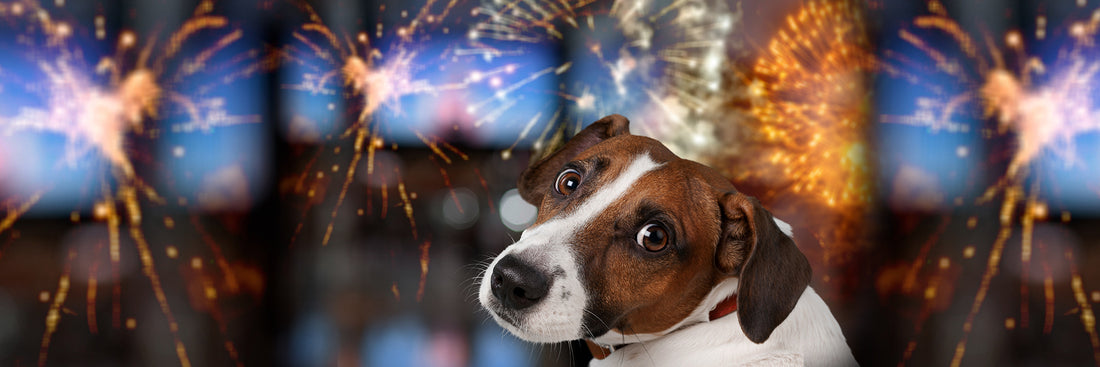It’s no wonder pets find fireworks scary, with their sensitive hearing and no understanding of what’s going, loud and unexpected bangs can be simply terrifying. While we can’t explain to our cats and dogs what’s happening, these simple tips will help you reassure them.
How can you help?
When it comes to pets and firework season, preparation is key. Walking dogs during daylight hours means they won’t have to leave the house later in the evening. And if your cats are out during the day, keeping them indoors before the fireworks are about to be set off will ensure they remain safe.
If you haven't microchipped your pet, now is a good time to do so. Not only is microchipping dogs required by law, but it can also make finding a lost pet possible.
By planning well in advance, there are ways you can help your pet get used to the sound of fireworks. Some pet owners find that exposing their pets to these (by playing a CD or video) helps desensitise them to the loud noises. Start on low volume (so they can barely hear it) and increase it gradually over a few days. It can take some time for your pet to feel comfortable with the noise, but it's a great start in helping them overcome their fear.
Calming solutions
If your pet is showing signs of stress, calming products can assist in making them feel more at ease. Adaptil products for dogs release synthetic feel-good pheromones similar to the ones mother dogs use to calm their puppies. Available as collar, diffuser or a spray, all Adaptil products have a natural reassuring effect without being sedative.
Similarly, Feliway's pheromone-based products can help take the edge off situations that cats find stressful. Their diffusers and calming spray are popular amongst cat owners since they are gentle, non-sedative and can be used alongside medication.
As for small furries, they can find the firework season stressful too. Remember to bring outside hutches in where possible, adding extra bedding so your pet can bury down and get cosy. If the hutches stay outside, cover them with thick blankets to block out sounds while allowing ventilation.
The day of the event
As soon as the noises start, your pet may get startled and make a dash for it, so it’s good to prepare a hiding place in your home where they can retreat to. Anything from a quiet room to a spot under furniture could help them feel safer.
Keep windows and doors closed, and draw curtains to help block out the sound and flashing lights of fireworks. You can also put the TV, radio (or better yet, some classical music) on to muffle the bangs.
It’s never a good idea to punish or yell at pets for behaving unpredictably during fireworks – this will only make their anxiety worse. Instead, remember pets can find it hard to process loud noises (not to say anything that disrupts their daily routine!). So while it may sound strange, the best thing pet parents can do is try to act normal: when your cat or dog turns to you for reassurance, they will pick up that you’re not worried. In essence, remaining calm and positive will send good vibes to your furry friend.
Protecting wildlife
Bonfire Night can be fatal for wild animals such as wood mice and hedgehogs. Since this is when many of these creatures go into hibernation, a pile of leaves and wood can seem like an attractive nesting place. To help protect them, build your bonfire on the day of lighting it and give the branches a shake in case animals are hiding inside.
As much as 50% of the UK rural hedgehog population has disappeared since 2000 alone, so our role in keeping them safe is crucial! The Woodland Trust has some great advice on feeding and protecting these spiky little mammals.
Now that you have the tips, we hope Bonfire Night goes smoothly for the furry members of the family. With patience and preparation, your pet may forget about those pesky fireworks in a flash.






Recent post